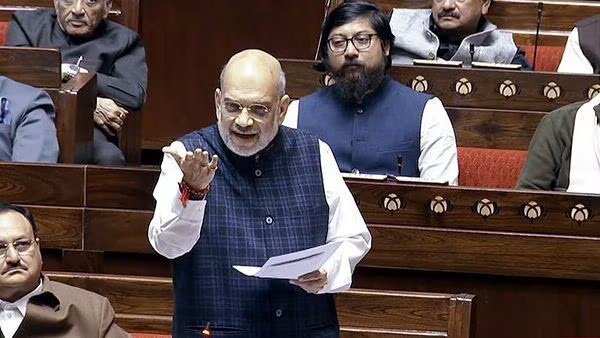Srinagar/New Delhi: As the Union Home Minister Amit Shah on December 12 introduced three revised Bills in the Lok Sabha to replace the existing ‘British-era’ criminal laws, the Indian Penal Code (IPC), 1860; the Code of Criminal Procedure (CrPC), 1973 and the Indian Evidence Act, 1872; The Himalayan Post explains the key changes embedded in these bills.
Bharatiya Nyaya (Second) Sanhita - Amendments to IPC:
Redefined Terrorism: The bill aligns the definition of terrorism with the Unlawful Activities (Prevention) Act, 1967. As per the new law, any act intending to threaten the unity, integrity, and security of India is now categorized as a terrorism offense.
Expanded Terrorism Offenses: Counterfeiting currency is now part of terrorism offenses.
Recruiting and training for terrorist acts are now explicitly criminalized.
Punishments: Terrorism-related offenses can lead to death or life imprisonment.
Conspiring or facilitating terrorism may result in imprisonment from five years to life.
The BNSS bill empowers armed forces by preventing the registration of cases against them for acts performed in the line of duty without prior approval from the Central or State government.
Sedition is no longer considered an offense; a new offense act is introduced to protect the sovereignty, unity, and integrity of India.
Misconduct activities such as kidnapping, extortion, and cyber-crime are now offenses.
Mob Lynching: Group killings, such as mob attacks based on caste, religion, or personal reasons, are labeled as offenses with penalties of life imprisonment or death.
Cruelty Defined: The bill defines cruelty against women with a jail term of up to three years. Acts causing harm, harassment, or coercion for property or security are considered cruelty.
Omissions: Gender-neutral provisions for adultery and non-consensual acts are not included in the revised bill.
A proposed law on hit-and-run cases, provides for a jail term of 10 years if a person is found involved in rash driving, escapes the crime scene and fails to report the incident to police, according to the Bharatiya Nyaya Sanhita, 2023, brought by the Centre in Parliament, seeking to replace the colonial-era Indian Penal Code (IPC).

Bharatiya Nagarik Suraksha (Second) Sanhita - Changes to CrPC:
Community Service: Community service is introduced as punishment for minor offenses to benefit the community, without remuneration. Magistrates can impose community service for a more reparative approach to crimes.
Handcuffing and Police Custody: Handcuffs can now be used beyond arrest, even for economic offenses. Police custody can extend beyond the initial 15 days, a point of controversy.
Audio-Visual Proceedings: Court proceedings can now use audio-visual means for specific activities.
Preventive Detention and Forensic Investigation: Preventive detention must adhere to a strict timeline. Misconduct in forensic investigations carries a seven-year penalty.
Electronic Mode Proceedings: All criminal proceedings, including custody extension, can occur in electronic mode.
Bharatiya Sakshya (Second) Sanhita - Changes to IEA:
Electronic Records as Primary Evidence: Electronic records are now considered primary evidence, stored in any electronic device. Secondary evidence requirements may reduce, focusing on documentation.
Criticizing the extension of police custody beyond the initial 15 days under the BNSS, Senior Advocate Mudassir Dar vehemently argued that this move poses a grave threat to civil liberties.
"Prolonging the duration of police custody in the BNSS strikes at the very core of civil liberties protection," he asserted.
Moreover, the bill not only mandates trials to be conducted and judgments pronounced even in the absence of a proclaimed criminal but also introduces a directive for officials to collect signatures, finger impressions, and voice samples from individuals who have not been arrested, he said.